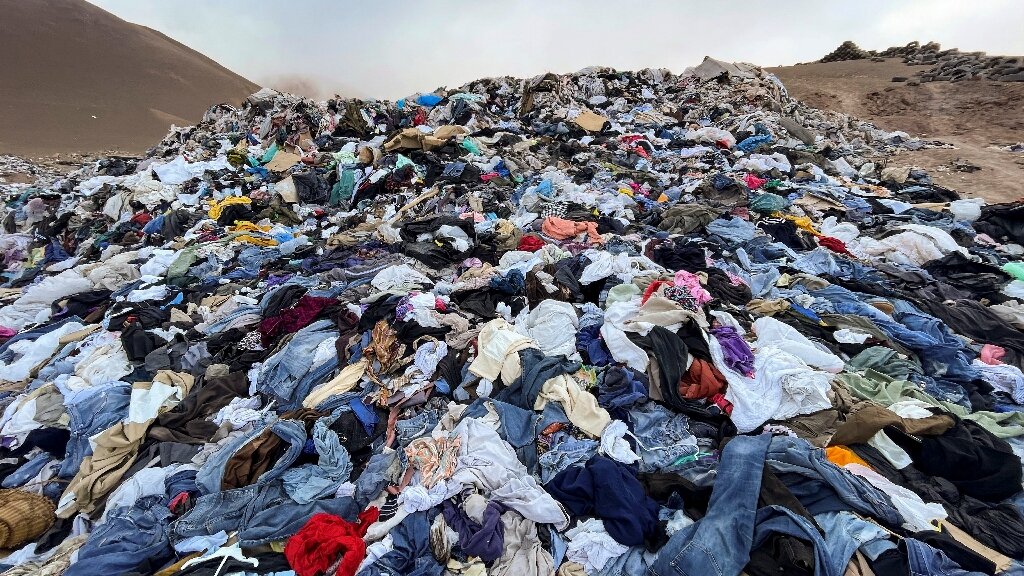KATHMANDU: If a new analysis is to be considered, clothing of the height of Mt Everest (8848.86m) is disposed of in every seven minutes in the world.
United Kingdom’s Children’s fashion brand FIVE OF US has created a page visualizing the sheer amount of waste the global fashion industry contributes in a 12-month period, that reveals the fact of waste clothing products in the world.
Despite heightened consumer awareness of the environmental issues surrounding clothing production, as few as 1% of clothes are being recycled into new ones, it said.
It comes after recent statistics revealed that of the 32 billion garments produced for the fashion industry each year, a whopping 64% will end up in landfill.
According to the analysis, every 16 seconds the equivalent of the height of the Eiffel Tower (324m) is thrown in a landfill while the height of the Burj Khalifa (830m) is thrown in every 42 seconds.
Meanwhile, in six hours, the pile would be able to reach the International Space Station (408,000m above Earth). Similarly, in nearly eight months (228 days) the pile could reach the Moon, more than 384 million metres away from Earth.
The massive growth of fast-fashion brands like Shein and H&M has only exacerbated issues.
As clothing production more than doubled over the past 20 years from 100 to 200 billion units annually, the average number of times an item gets worn has decreased by 36% – and that number continues to drop.
In fact, 94M kg worth of single-use outfits are bought every year, which has a hugely negative impact on the sustainability of the fashion industry.
Despite increasing demand from consumers, 25% of fast fashion garments remain unsold, and 12% of fibers are being discarded on shop floors.

All of this is contributing to the fashion industry’s place as one of the fastest-growing polluters on our planet. Its global emissions output is predicted to increase by 49% by 2030 if nothing changes, according to the analysis.
As for consumers, we are no better than the producers themselves. Shockingly, half of us throw unwanted clothes directly into the bin, rather than reselling them or giving them to charity.
Predicted to grow at an annual rate of 11.6%, the eco-friendly clothing industry is likely to be fashion’s most expanding sector over the coming years.
Which is no surprise, as last year more than two-thirds of UK consumers considered a brand’s sustainable proactiveness before making a purchase. Nish Parekh, a co-founder of upcycling fashion brand KAPDAA, believes this trend will continue to grow throughout the industry.
“Green choices, now in vogue, present lucrative opportunities that may have previously seemed a hassle,” says Parekh. “Consumers already judge sustainability as a key importance when buying from brands; those slow to catch on a stand to lose out.”
Another brand, LOANHOOD, has been making names in the sustainable space by designing a person-to-person clothes swap and rental model. Individuals can bring items of clothing or even a whole look from their wardrobe and swap it with items brought by others. This solution limits the desire to purchase yet another brand-new jacket that will only be worn twice a year.’

“We started LOANHOOD to solve a problem that we were facing and knew other people were, too. We wanted to be more sustainable and help improve the fashion industry, but we didn’t want to give up that fashion fix.
By circulating what is already hanging in our wardrobe, we can prolong the life of garments, get that fashion fix and buy less but better, ” Lucy, Loanhood’s founder said.
The second-hand clothing space is also helping to solve the waste crisis, and the most encouraging news is that it has grown exponentially in recent years, with Depop and Vinted now two huge household names.
In fact, Depop’s revenue and gross merchandise sales more than doubled in 2020, to $70M and $650M, respectively.
The growing success and popularity of sustainable clothing brands is exciting for entrepreneurs looking to start their own businesses in this space.
(With inputs from Startups.co.uk)









Comment